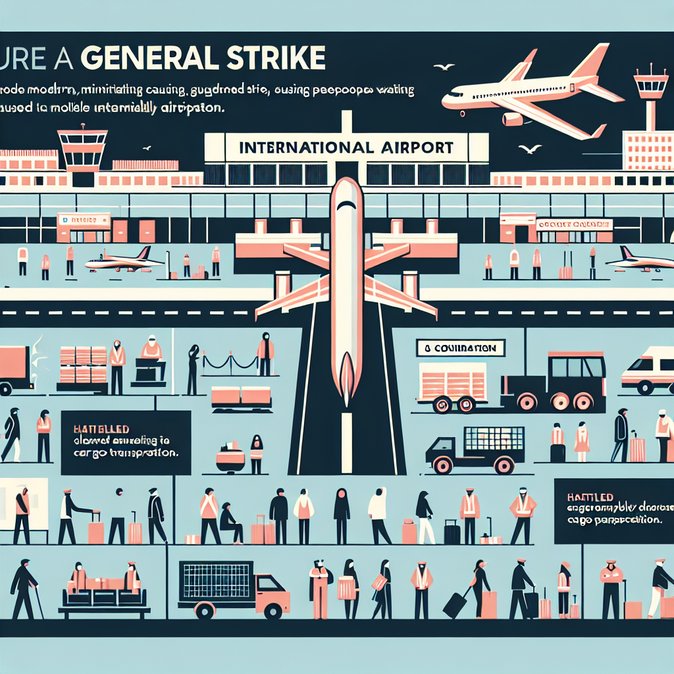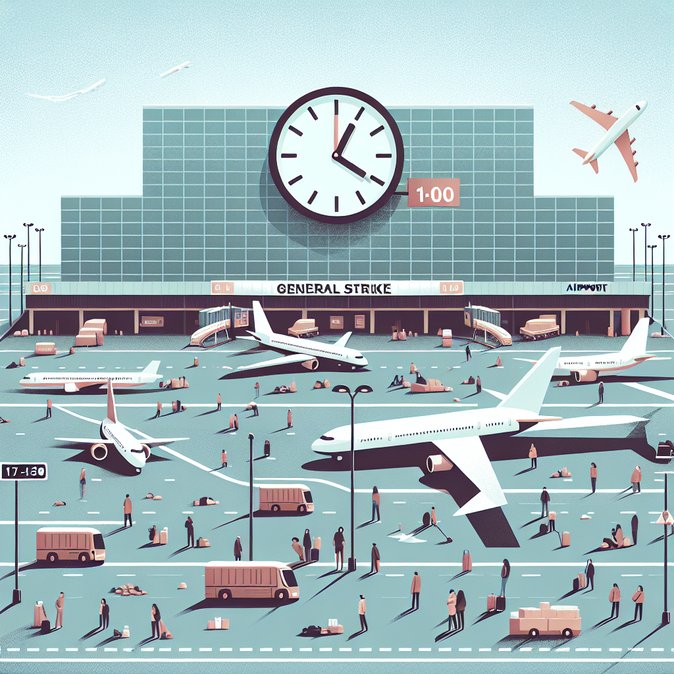
Hermes Airports has warned airlines and passengers that a nationwide general strike on Thursday 20 November will ground or delay at least 54 scheduled services—38 at Larnaca International and 16 at Paphos. The walk-out, called by Cyprus’ major public- and private-sector unions, will run from 11:00 to 14:00 local time as part of a campaign to restore the cost-of-living allowance mechanism suspended during the 2013–15 financial crisis.
Although limited to three hours, the stoppage hits a peak departure window for flights to London, Athens, Gulf hubs and regional business destinations. Jazeera Airways (Kuwait), Qatar Airways (Doha) and Emirates (Dubai–Larnaca–Malta) have cancelled round-trips, while European carriers are retiming services to land before or depart after the strike. Hermes estimates more than 15,000 passengers—including hundreds of commuters working for the island’s booming fintech and shipping sectors—will face disruption.
![Three-Hour General Strike to Disrupt 54 Flights at Larnaca and Paphos Airports]()
Ground-handling companies have agreed to deploy extra staff once the strike ends, but immigration queues and knock-on delays are expected through the early evening. Freight forwarders say they are rerouting urgent belly-hold cargo via Athens and Istanbul, adding up to €150 per pallet in handling costs. Travel-risk consultancies rate the security impact as low but urge travellers to avoid planned demonstrations outside parliament in Nicosia.
Labour Minister Marianna Charalambous has promised to table a reform proposal on the cost-of-living allowance by year-end. Union leaders have threatened rolling 24-hour strikes in December—which coincides with the winter tourism peak—if talks stall. Mobility teams are advising expatriate staff and visiting executives to build slack into itineraries, reconfirm layovers and carry digital boarding passes in case of on-the-day gate changes.
For multinationals, the episode underlines Cyprus’ vulnerability to industrial action: with no rail network and only seasonal ferry alternatives, air travel remains the sole practical gateway for time-sensitive business trips and cargo.
Although limited to three hours, the stoppage hits a peak departure window for flights to London, Athens, Gulf hubs and regional business destinations. Jazeera Airways (Kuwait), Qatar Airways (Doha) and Emirates (Dubai–Larnaca–Malta) have cancelled round-trips, while European carriers are retiming services to land before or depart after the strike. Hermes estimates more than 15,000 passengers—including hundreds of commuters working for the island’s booming fintech and shipping sectors—will face disruption.

Ground-handling companies have agreed to deploy extra staff once the strike ends, but immigration queues and knock-on delays are expected through the early evening. Freight forwarders say they are rerouting urgent belly-hold cargo via Athens and Istanbul, adding up to €150 per pallet in handling costs. Travel-risk consultancies rate the security impact as low but urge travellers to avoid planned demonstrations outside parliament in Nicosia.
Labour Minister Marianna Charalambous has promised to table a reform proposal on the cost-of-living allowance by year-end. Union leaders have threatened rolling 24-hour strikes in December—which coincides with the winter tourism peak—if talks stall. Mobility teams are advising expatriate staff and visiting executives to build slack into itineraries, reconfirm layovers and carry digital boarding passes in case of on-the-day gate changes.
For multinationals, the episode underlines Cyprus’ vulnerability to industrial action: with no rail network and only seasonal ferry alternatives, air travel remains the sole practical gateway for time-sensitive business trips and cargo.


